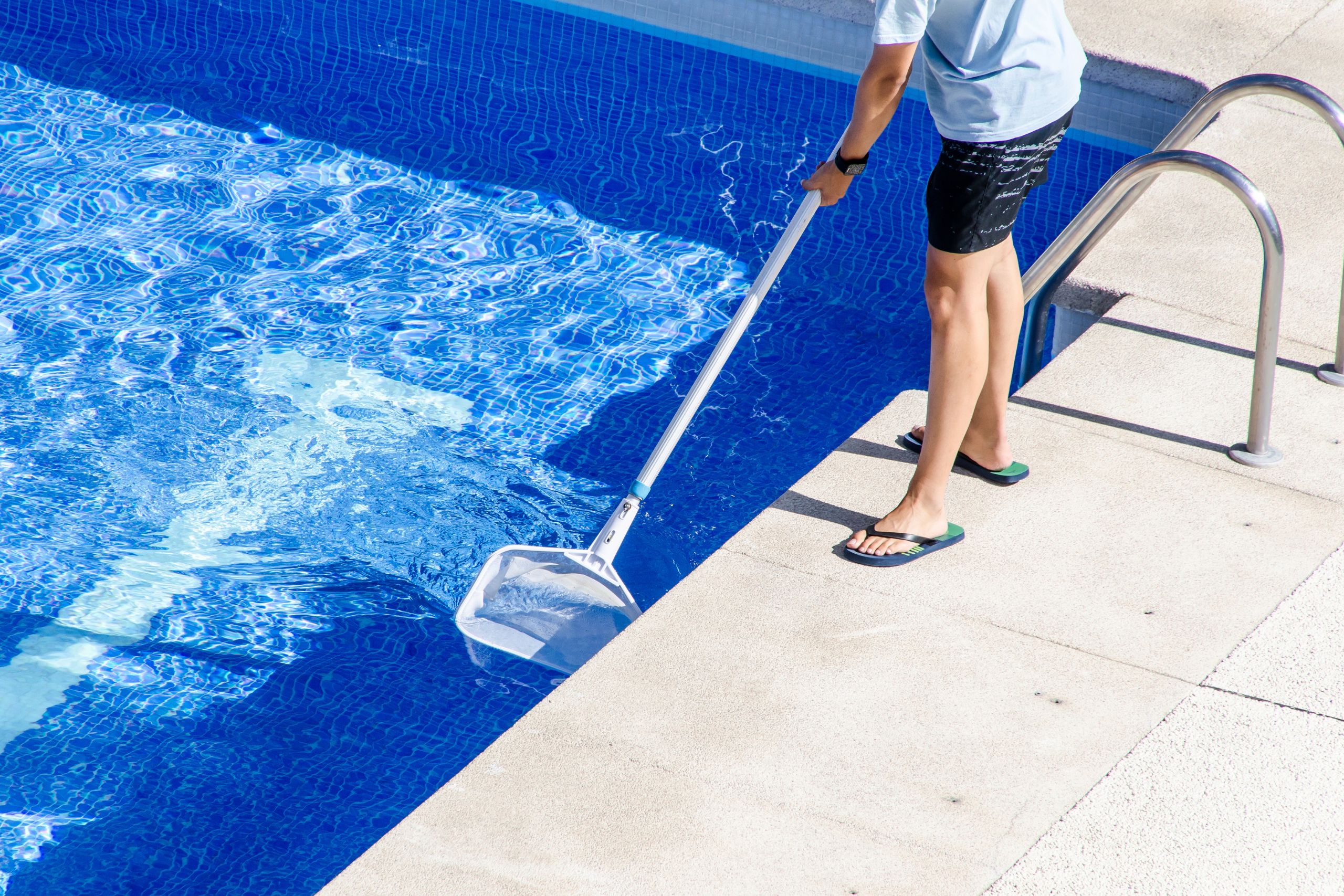
Swimming pools must be properly cleaned and maintained in order to remain in a quality condition for you and our guests to enjoy. If you own a pool then you know that it can be a wonderful place for fun and relaxation, but if you want to get the most out of your pool and keep it from becoming unsightly, odorous, and even dangerous, it’s wise to understand best practices of when and how to clean it.
So how frequently should your pool be cleaned, and what do cleaning, care, and maintenance entail? With extensive knowledge from our experience with pool cleaning services throughout Greater Atlanta and the surrounding communities, here is Captains Pool Care’s comprehensive guide for cleaning your pool.
Cleaning your swimming pool is important for health, financial, and aesthetic reasons. Perhaps the most critical reason to keep your swimming pool properly cleaned is that it can be a health risk for swimmers if the pool is dirty or infected. Dirty pools can be a breeding ground for infectious organisms and harmful bacteria which can be potentially fatal or cause serious illness, and unmaintained pools can develop unbalanced chemical levels which cause skin, hair, and eye irritation. Swimming pools, therefore, need regular cleaning and maintenance to ensure swimmers are safe and healthy when using them.
There are also financial reasons for keeping your swimming pool clean. First, it helps prevent costly repairs or replacements in the future. Regular cleaning also keeps your pool's components working efficiently, saving money on utility costs - for instance, a well-maintained pool pump uses less energy and thus, reduces electricity bills. Lastly, regular pool care helps maintain the value of the pool itself. A clean, well-maintained pool can greatly add to a property's value, making regular pool cleaning an excellent investment.
Finally, there are several aesthetic and practical reasons for keeping your pool clean, such as preventing the growth of algae and the development of cloudy water (which is both unattractive and potentially harmful), preventing the rapid consumption of chlorine, preventing the accumulation of leaves, dirt, debris, dead skin, hair, and oil, and halting the spread of calcium and other mineral deposits from damaging the pool surfaces.
With the consensus that swimming pools should certainly be cleaned routinely and effectively, the next step is to understand what exactly needs to be done in order to clean a pool. In essence, pool cleaning should be viewed as both proactive and reactive. Taking proactive steps such as maintaining chemical balance, checking and testing the pump and filter, and investing in a pool cover will all help to keep your pool clean over time.
Reactive steps are just as important, however, especially when there are visible signs of uncleanliness like the buildup of debris and impurities, the development of dirty, green, or cloudy water, and marks on the waterline. Reactive steps might include using a pool vacuum or net to physically remove impurities, taking water samples and tests if you suspect something is wrong, cleaning the waterline, brushing/sweeping the area around the pool, cleaning out the skimmer baskets, and backwashing your pool filter.
Knowing how often to take these proactive and reactive measures is the key to successful pool cleaning and maintenance. As a general rule of thumb, pool cleaning should be regularly carried out at least once a week, although this will vary depending on how frequently the pool is used, how many people use the pool, and where the pool is located.
Many pool manufacturers (and installers) will provide guidelines on how frequently the pool should be cleaned, but it’s wise to remember that frequent pool cleaning will never hurt your pool while infrequent pool cleaning will. Your pool should certainly be cleaned as soon as you can detect any debris or discoloration - if you wait to act, the problem will only get worse.
Your weekly cadence of pool cleaning will need to be complemented by more rigorous cleaning and maintenance occurring annually or bi-annually. You will also need to service the machinery such as boilers and heat pumps once or twice a year.
Swimming pools are meant to be a place of peace, relaxation, and fun. We understand, therefore, how the arduous task of cleaning your pool can become wearisome week after week, but that doesn’t mean you can become complacent in your duties. By not routinely cleaning your pool, your pool will suffer from a health and safety standpoint, become less aesthetically pleasing, and require even more significant costs down the line.
The best way to ensure your pool is properly cleaned and maintained is to invest in weekly pool cleaning services by an experienced and reputable professional. At Captains Pool Care, we know what it takes to ensure your pool remains clean, safe, and always ready to be swimmed in - contact us today to schedule your weekly pool maintenance and to learn more about how we can help!